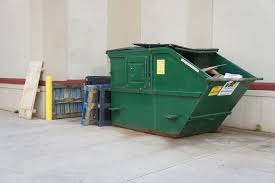Strategies for Sorting and Recycling Materials with Dumpster Rentals
Embracing a Circular Economy Mindset: Promoting Reuse and Resource Recovery with Dumpster Rentals
When utilizing dumpster rental for decluttering or home improvement projects, homeowners play a pivotal role in ensuring proper sorting and recycling of materials to minimize waste and promote sustainability. Rather than viewing dumpsters as mere receptacles for discards, homeowners can adopt proactive measures to segregate materials and maximize recycling opportunities.
One effective strategy is to establish a system for sorting materials before disposal. By designating separate bins or areas for recyclables, such as paper, plastics, metals, and glass, homeowners can streamline the sorting process and facilitate responsible disposal. Clear signage and communication can help reinforce sorting guidelines for household members and ensure consistency in waste management practices.
Moreover, homeowners can leverage the services of waste management providers that prioritize recycling and sustainable disposal practices. Many dumpster rental companies offer recycling options for various materials, including cardboard, plastic bottles, aluminum cans, and electronic waste. By partnering with eco-conscious providers, homeowners can ensure that recyclable materials are diverted from landfills and processed responsibly.

Additionally, educating oneself about local recycling regulations and guidelines is essential for homeowners seeking to enhance their recycling efforts. Municipalities often have specific requirements for recycling certain materials, as well as designated drop-off locations or collection schedules for recyclables. By familiarizing themselves with these regulations, homeowners can ensure compliance and maximize recycling opportunities within their communities.
One approach is to set aside items in good condition that can be donated to local charities or reused by others in need. Furniture, clothing, appliances, and household goods are often sought after by charitable organizations and thrift stores, providing a second life for items that would otherwise end up in landfills. By donating usable items, homeowners can contribute to community welfare while reducing waste and supporting sustainable consumption practices.
Furthermore, homeowners can consider repurposing materials for DIY projects or creative endeavors. Items such as lumber, metal fixtures, and decorative elements can be salvaged from discarded furniture or construction materials and transformed into new and innovative creations. This approach not only reduces waste but also fosters creativity and self-sufficiency, empowering homeowners to reimagine the potential of discarded materials.
Moreover, exploring opportunities for material recovery and recycling beyond traditional curbside collection can yield additional environmental benefits. Many communities offer specialized recycling programs for electronics, appliances, hazardous materials, and other hard-to-recycle items. By taking advantage of these programs and partnering with reputable recycling facilities, homeowners can divert a greater proportion of waste from landfills and support the development of a more sustainable waste management infrastructure.